Apple Unveils New Macs With Custom M1 CPUs And Big Unsubstantiated Performance Claims
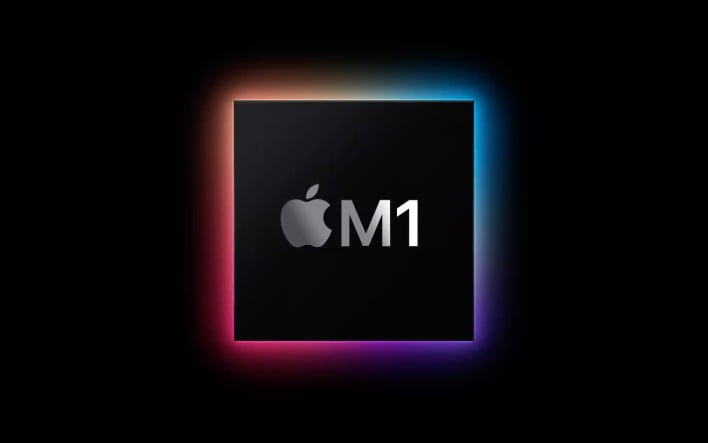
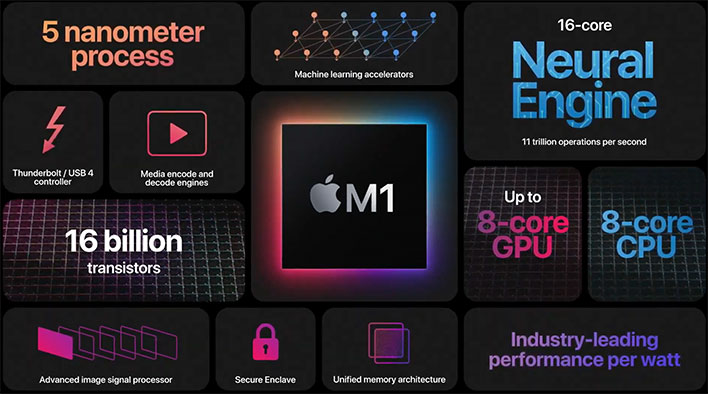
To achieve this, M1 is built on a 5-nanometer process node and is comprised of some 16 billion transistors. At its heart is an 8-core CPU with 4 high-performance cores coupled with 4 efficiency cores. The high-performance cores feature 192KB instruction cache, 128KB data cache and shared 12MB L2 cache. As for the efficiency cores, they feature 128KB instruction cache, 64KB data cache and shared 4MB L2 cache. Apple M1 is also using a low-latency and high bandwidth unified memory architecture.
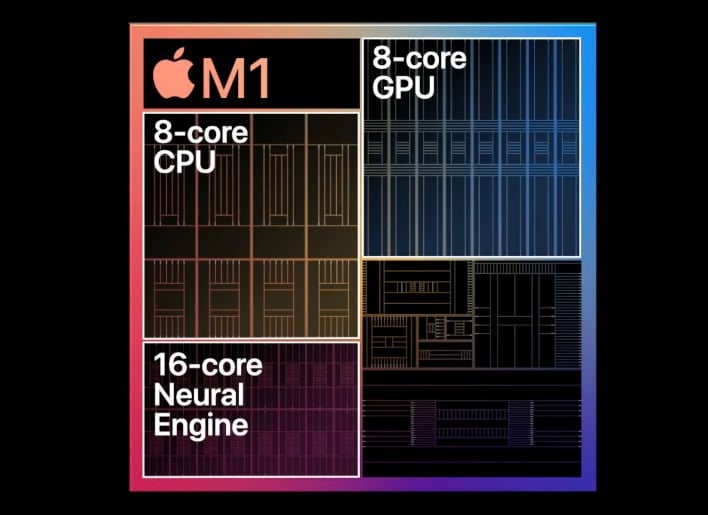
Also integrated into the M1 is an 8-core GPU with 128 execution units. As you can see, the GPU takes up roughly a quarter of the M1 die, and is claimed to deliver 2.6 TFLOPs for compute performance.
Apple Says It's Faster But How Much Faster Is Debatable Without Supporting Data
As is typically the case with Apple, the company unfortunately isn’t being specific when it comes to performance, which is problematic. The company is using superlatives, like the claim that it offers the “World’s best CPU performance-per-watt”. Apple threw out figures with the M1’s performance far surpassing the best-selling Windows laptop on the market, while saying that the graphics is up to 6 times faster. Apple provided no frame of reference for these numbers, so we have no clue how these figures will stack up in the real world.
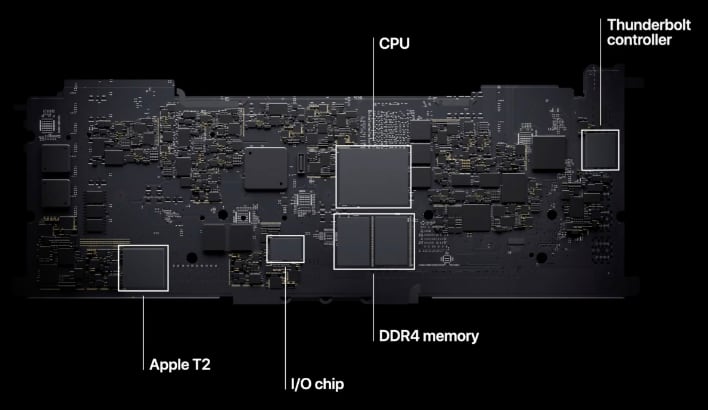
Quite frankly, we were expecting to see some real-world benchmarks comparing M1 to the best available from Intel, but Apple came up short here. In other words, we’ll have to wait until systems are actually shipping until we can get the real truth on how M1 stacks up – and not just with synthetic benchmarks like Geekbench. In a similar vein, Intel just released the following statement after Apple started beating its chest about benchmarks:
Intel is focused on delivering the most advanced PC experiences and a wide range of technology choices that redefine computing. We believe Intel-powered PCs—like those based on 11th Gen Intel Core mobile processors—provide global customers the best experience in the areas they value most, as well as the most open platform for developers, both today and into the future.
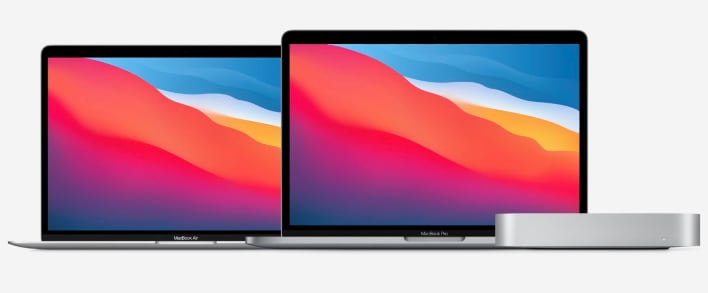
With that said, Apple announced that it is making available three refreshed Macs all powered by the M1 SoC: the MacBook Air, 13-inch MacBook Pro, and Mac mini. In the case of the MacBook Air, battery life is claimed to have been boosted by 6 hours compared to its Intel-based counterpart (now 18 hours), while offering a [claimed] 3.5x boost in CPU performance and up to a 5x faster GPU. Machine learning performance is also said to be 9x faster. Apple is doing all this while making the machine fanless for the first time, and has held the line on pricing ($999).
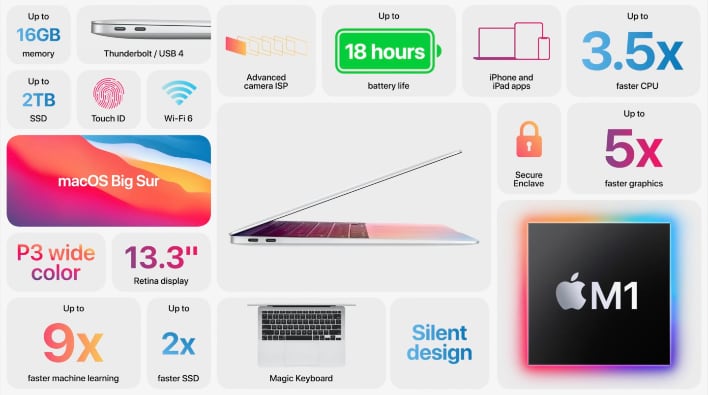
As for the Mac mini, Apple is saying that the M1 is 3x faster than the current system, with a 6x faster GPU and 15x better machine learning performance. The Mac mini is now $100 cheaper, with a starting price of $699.
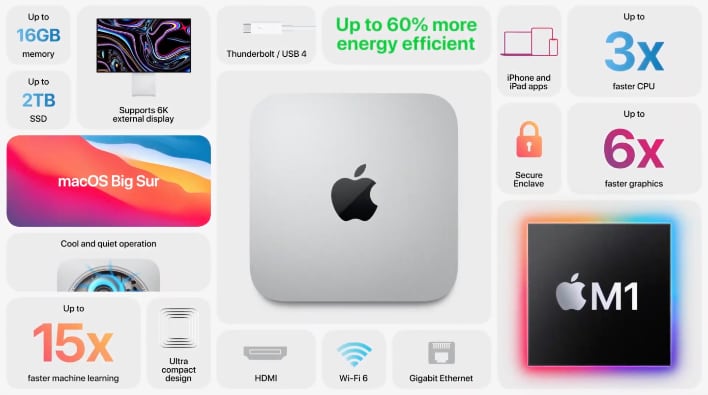
Finally, the 13-inch MacBook Pro is said to be 2.8x faster than before, with a GPU that is up to 5x faster for graphics workloads. While these claimed performance gains are nice, the big perk here is that reportedly maximum battery life has doubled from 10 hours to 20 hours. The M1-powered 13-inch MacBook Pro will start at $1,299.
All of the new M1-powered Macs can be equipped with up to 16GB of RAM, up to 2TB SSDs, and come with Thunderbolt (which gen wasn't specified) and USB 4 ports onboard. All three machines are available for preorder today, and will ship next Friday. Finally, Apple's critical macOS Big Sur, which features native support for the new Apple M1 SoCs, will be available this Thursday.

